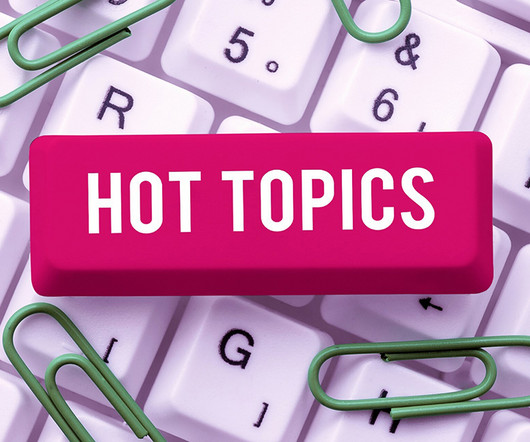Crisis Comms, AI and Ethics: January Roundup
Burrelles Fresh Ideas
JANUARY 30, 2024
Resource: Remember the five key components of re-building trust after a crisis : truth and transparency, timely responsiveness, getting the messaging right, imparting empathy and compassion, and maintaining consistency and continuity. It’s ethically the right thing to do. A moment that will likely stretch into years.











Let's personalize your content